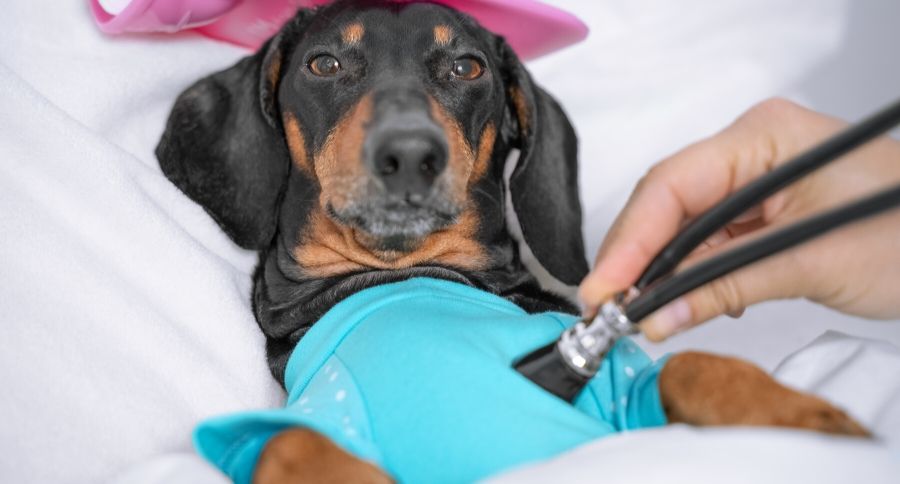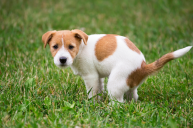Coccidia are single-celled organisms that infect the intestine. It's a parasite! They are microscopic parasites detectable on routine fecal tests.
According to Veterinary Partner experts, coccidia will cause watery diarrhea.
"Coccidia infection causes watery diarrhea that is sometimes bloody and can be a life-threatening problem to an especially young or small pet."
This infection causes watery, mucus-based diarrhea in dogs, and if it goes untreated, it can cause damage to the lining of the dog's intestinal tract.
With treatment, the prognosis is good, so get your dog to the vet if you notice diarrhea and lethargic behavior.
How does it spread? It spreads through fecal matter and is most commonly found in puppies that have contracted the parasite from an adult dogs' feces. The coccidiosis infection is of particular danger for young dogs since their immune systems are still underdeveloped.
What is coccidia in dogs?
https://www.instagram.com/p/B3z3LUVByC7/
Coccidiosis is an intestinal tract infection caused by a single-celled organism (a protozoa) called coccidia.
These parasites spend part of their life cycle in the lining cells of the intestine. Despite damaging these cells, most infections in dogs are not associated with any detectable clinical signs. Infections without clinical signs are called sub-clinical infections.
Where does coccidia come from?
Your dog can become infected from swallowing oocysts (immature coccidia) from dog feces and soil contaminated with feces.
Because infected dogs pass oocysts in the feces, they're very resistant to a wide variety of environmental conditions and can survive for some time on the ground.
VCA Hospitals also tell us a dog can become infected by eating a mouse with coccidiosis.
How is coccidia in dogs treated?
https://www.instagram.com/p/B3Fa-gMFgbO/
The main symptoms will be diarrhea and vomiting as the bacteria reside in the intestines.
Luckily the prognosis is good. Petmd.com confirms that rehydration is necessary and a medication that is highly effective will be given immediately.
"The dog will need to be rehydrated as a result of the diarrhea. If the dog is debilitated, it may be kept for observation. A follow up fecal examination within one to two weeks of the initial treatment will be needed to ensure that the parasite is no longer present in the animal's body."
A typical treatment course lasts about a week or two, but it is important to realize that the medication should be given until diarrhea resolves plus an extra couple of days.
Can people or other pets be infected?
https://www.instagram.com/p/B1trVsDFL7r/
Veterinary Partner tells us that other pets may become infected from exposure to infected fecal matter but it is important to note that this is usually an infection of the young. The most common species cannot affect humans.
My doxie digs in the dirt and enjoys himself a mouse every once in a while. I wonder if he's ever had this parasite! We don't have our dogs' stay at kennels and I haven't heard of any recent severe cases at any local clinics but it's still important to be aware of possible coccidial infections and what the symptoms are for all canines. It's terrible to think young animals can become very ill.
I always loved parasitology in vet tech school as there are large numbers of parasites you need to know about. Infected animals can become extremely ill. Your DVM will talk to you about fecal samples and when to bring in a possible follow up stool sample. The flotation allows the vet to see the oocysts.
Experts also advise using disinfectants in the areas where there may be an issue. You need to make sure the species of coccidia are gone! Always looks for weight loss as a possible sign, too. You don't want reinfection to occur in the household.
Do you know a dog that was treated for coccidia? Please leave us a comment below!




